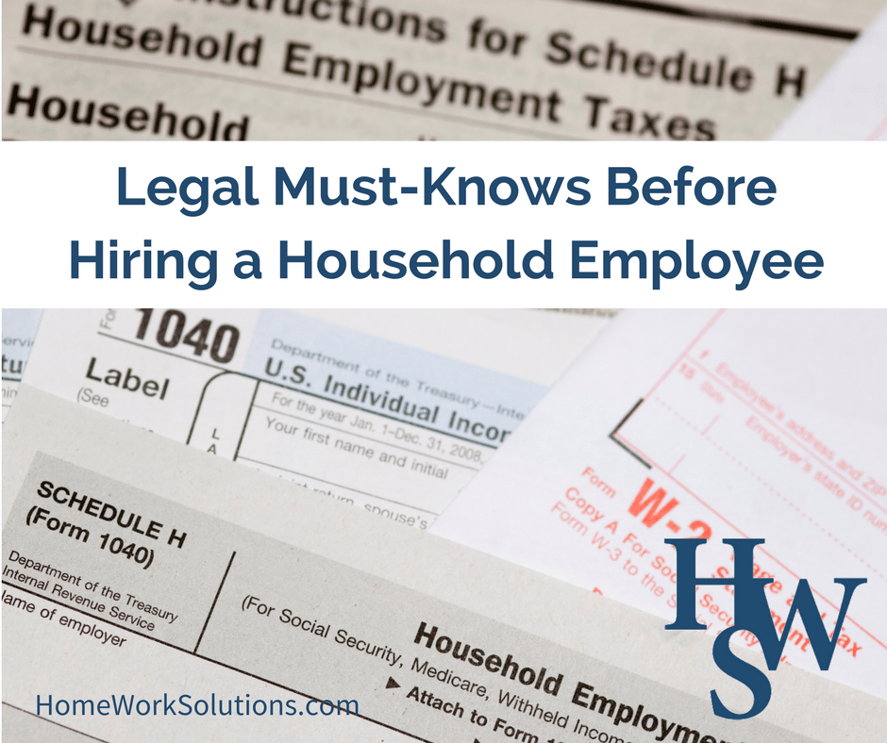
Considering hiring a caregiver, nanny, or other in-home employee? You may think it’s more convenient to pay them under the table, but in fact, this could be a very costly decision if you end up getting caught. There are some important legal must-knows before hiring a household employee and here, we will go over what those are.
#1: You will need to file for a Federal Employer Identification Number (EIN) and ask your employee to fill out forms W-4 and I-9 at or before the time of hire. The I-9 shows that your nanny or other household employee can work in the U.S. legally and a W4 will help figure out how much tax should be withheld from the monthly or weekly gross wages.
#2: You will need to start tracking your employee’s hours, gross pay, withholdings, and net pay from the very first day. Research what you need to pay or withhold for worker’s compensation, sick pay, disability, and other benefits you will provide.
#3: Register with the state as an employer and fill out the application for an employer registration number. This will certify that the quarterly taxes are credited accurately and on time.
#4: Fill out a new hire report for your state. You can do a simple search online for this form and once completed, it will notify state agencies that there is a new employee. After that, it will provide instructions on how to file the report accurately.
#5: Understand worker’s compensation laws in that state you live in.
Laws will vary from state to state, so be sure to read up on what the specific law is in your state. If your employee doesn’t work 40 hours a week for you and doesn’t live in your home, you may not be required to carry worker’s comp insurance, but if that person ends up being eligible for it and you have not planned ahead accordingly, you could have a penalty or fine for it.

